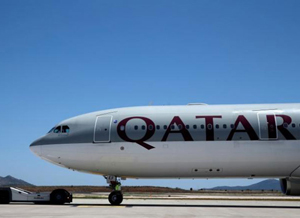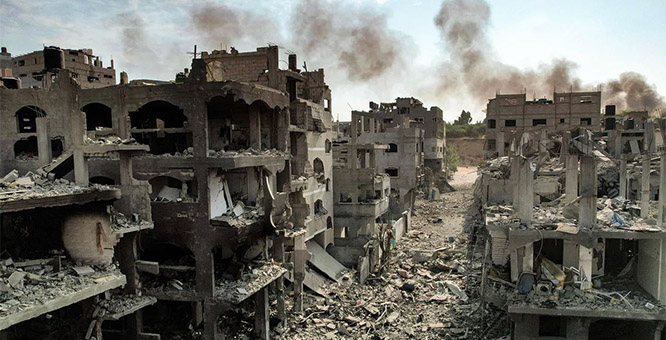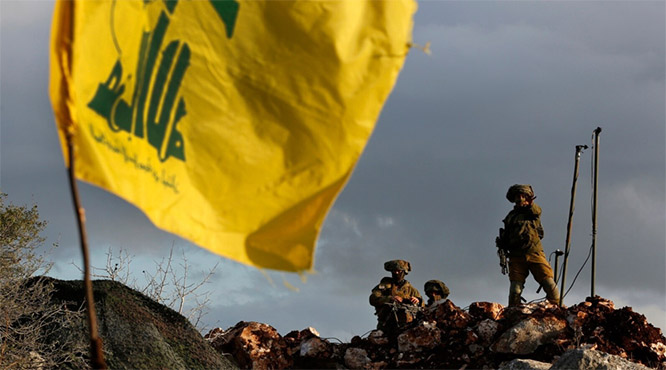Riyadh, Jun 6: A ban on Qatari flights imposed by Saudi Arabia and its allies took effect Tuesday as first efforts were made to resolve the biggest feud to hit the Arab world in years.

Saudi Arabia and allies including Egypt, the United Arab Emirates and Bahrain cut diplomatic ties and transport links with Qatar on Monday, accusing the Gulf state of supporting extremism.
Gas-rich Qatar has long had strained ties with its neighbours but the move by Riyadh and its supporters shocked observers, raising fears the crisis could destabilise an already volatile region.
The Gulf states and Egypt banned all flights to and from Qatar and ordered Qatari citizens to leave within 14 days.
Countries including Saudi Arabia also banned Qatari flights from their airspace and Riyadh closed its land border with Qatar, sparking panic buying in Doha amid fears of food shortages.
The first concrete effects were being seen on Tuesday morning, with the flight ban causing delays and cancellations.
UAE carriers Emirates, Etihad, flydubai and Air Arabia, as well as Saudi Airlines had all announced the suspension of flights to and from Qatar as of Tuesday morning.
A total of 27 flights from Dubai to Doha had been scheduled for Tuesday and the Dubai Airports website showed all flights to Doha cancelled.
Qatar Airways, for its part, said it had suspended all flights to Saudi Arabia, the UAE, Bahrain and Egypt "until further notice".
Saudi Arabia also announced it was revoking Qatar Airways' operating license.
Doha's Hamad International Airport was virtually deserted early on Tuesday. More than 30 flights were shown cancelled on airport television screens and the departures hall was eerily quiet.
On Monday, shoppers had flooded Doha's supermarkets worried that food imports would dry up.
In one store queues were up to 25-people deep as shoppers piled trollies high with supplies from rice to nappies.
"It's a cycle of panic and I needed to get pasta," said Ernest, a Lebanese national pushing two trollies.
Foreign powers including the United States, a key ally of Qatar, made urgent calls for talks to end the crisis.
In a first signal it was open to negotiations, Qatari Foreign Minister Sheikh Mohammed bin Abdulrahman Al-Thani called late on Monday for "a dialogue of openness and honesty" to resolve the crisis.
"We believe any issue could be solved through discussion and mutual respect," Sheikh Mohammed told Doha-based news channel Al-Jazeera.
He suggested Kuwait could play a role in mediating the crisis, saying that Kuwaiti Emir Sheikh Sabah al-Ahmad Al-Sabah had called his Qatari counterpart Sheikh Tamim bin Hamad Al-Thani on Monday.
Kuwait and Oman did not join fellow members of the Gulf Cooperation Council (GCC), which also includes Qatar, in cutting ties with Doha.
Kuwait's state-run news agency KUNA confirmed the phone call and said the Kuwaiti emir had also received a top Saudi envoy in an apparent mediation effort.
"Efforts aimed at containing tensions in the relations between brothers" were discussed in the phone call, KUNA said.
Turkey, which has good relations with Qatar and other Gulf states, also offered to help and Turkish President Recep Tayyip Erdogan late on Monday spoke to the emirs of Qatar and Kuwait and to Saudi King Salman.
The crisis will have wide-ranging consequences, not just for Qatar and its citizens but across the Middle East and for Western interests.
Qatar hosts the largest US airbase in the region, which is crucial in the fight against Islamic State group jihadists, and is set to host the 2022 football World Cup.
The country has long been accused by its Gulf neighbours and Egypt of supporting extremist groups.
In announcing it was cutting ties, Riyadh accused Doha of harbouring "terrorist and sectarian groups that aim to destabilise the region including the Muslim Brotherhood, Daesh (IS) and Al-Qaeda".
Riyadh also accused Doha of supporting Iran-backed "terrorist activities" in eastern Saudi Arabia and in Shiite-majority Bahrain.
Any suggestion Qatar is backing the agenda of Shiite-dominated Iran -- Sunni Saudi Arabia's regional arch-rival -- is especially sensitive.
"The measures are unjustified and are based on false and baseless claims," Qatar said in response to Monday's announcement.
The dispute comes less than a month after US President Donald Trump visited Saudi Arabia and called for Muslim nations to unite against extremism.
Gulf countries previously recalled their ambassadors from Qatar in 2014, ostensibly over its support for the Brotherhood, but Monday's moves go much further.
Saudi Arabia and its Gulf allies may have felt emboldened by Trump's visit, which saw the new president clearly align US interests with Riyadh and lash out at Iran.
Qatar has an independent streak that has often angered its neighbours.
The emirate has directly and indirectly supported Islamist groups across the Arab world, including the Muslim Brotherhood.
Qatar has also been criticised for supporting Islamist rebels in Syria, and in 2013, the Afghan Taliban opened a Doha office.
Fellow Gulf states are also reported to have been angered by a huge ransom paid by Doha earlier this year to secure the release of a hunting party, which included members of the Qatari royal family, kidnapped in southern Iraq.
The ransom, which Iraqi officials said was in the "hundreds of millions of dollars", was believed to have been paid to militias with close ties to Tehran.
Signs of an impending Gulf crisis emerged last month.
Doha said hackers were behind the release of false remarks attributed to the emir published on the website of its national news agency.
The stories quoted him questioning US hostility towards Iran, speaking of "tensions" between Doha and Washington and speculating that Trump might not remain in power for long.
Doha denied the comments and denounced a "shameful cybercrime".








Comments
Add new comment